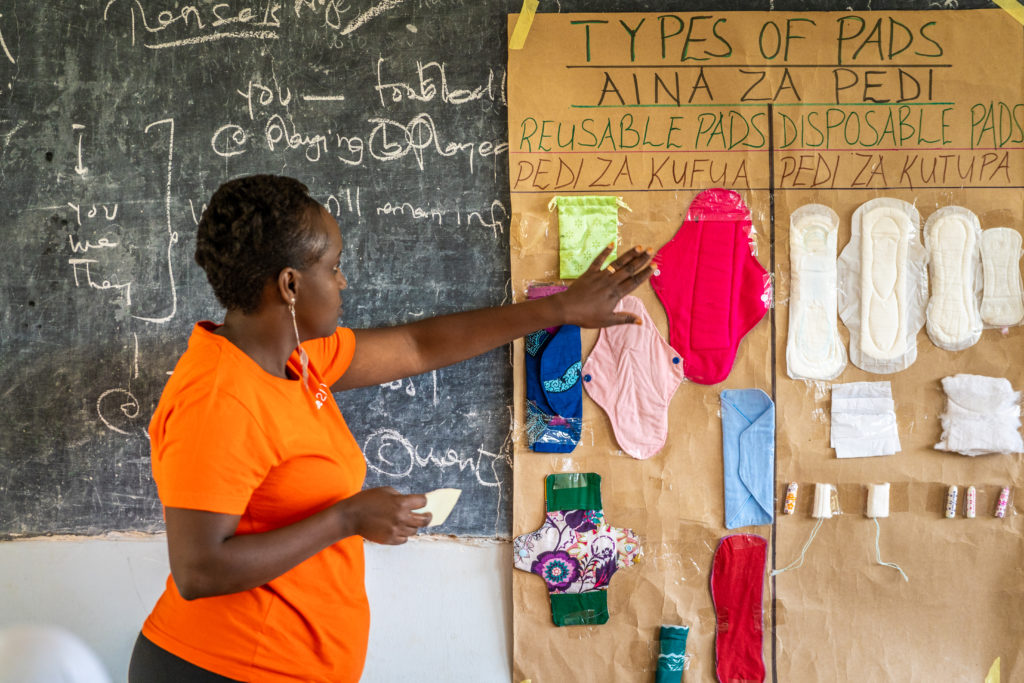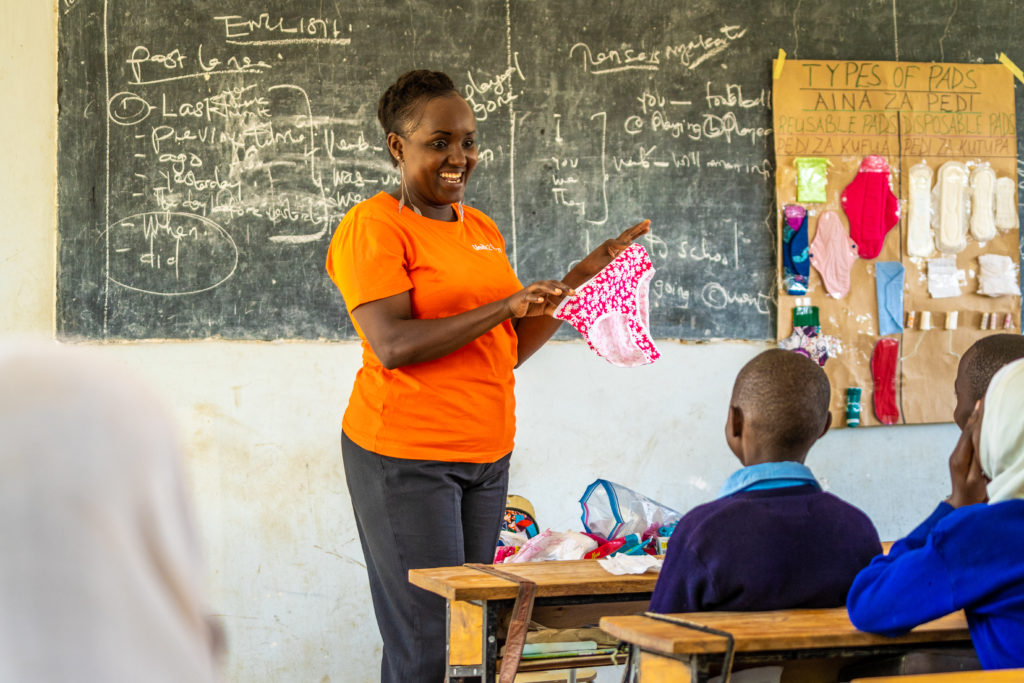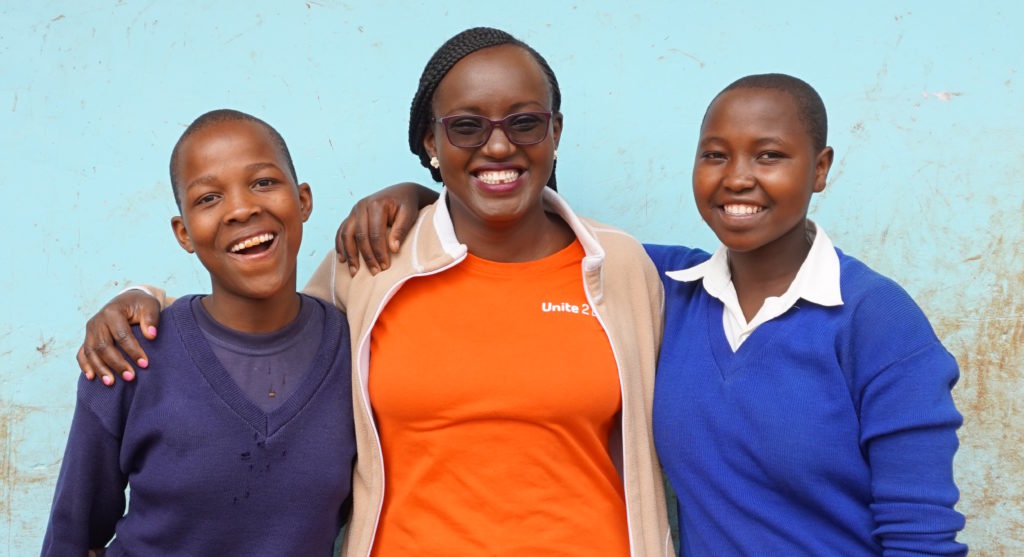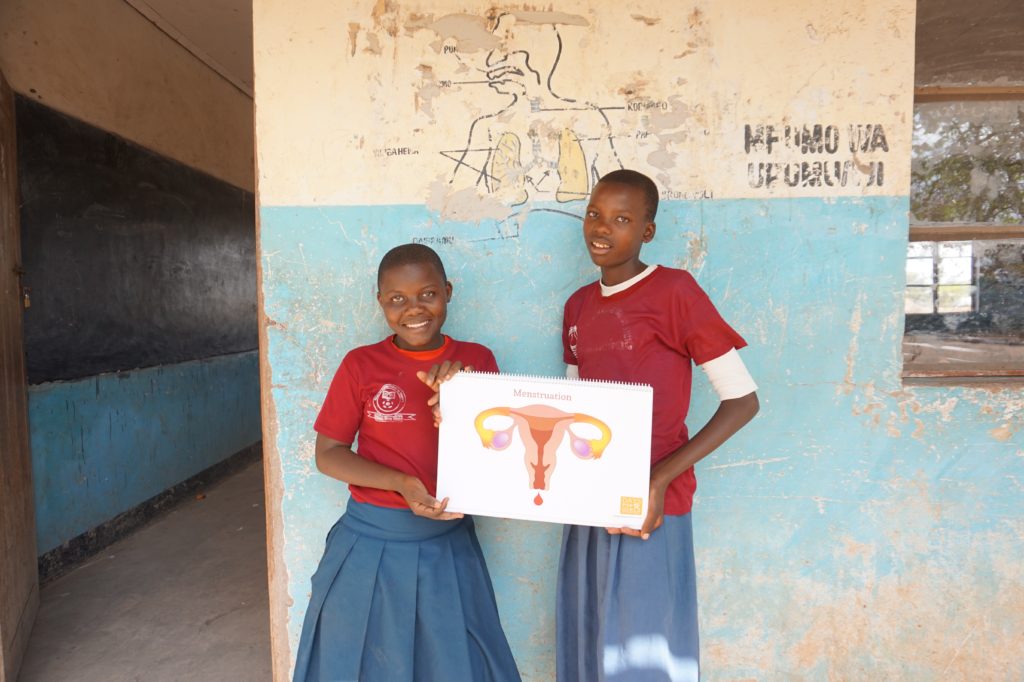Feminine hygiene products – ensuring girls’ school attendance
Join us and contribute to improved health and education for girls!
Many girls do not have access to feminine hygiene products, which means that they miss an average of one week of lessons in school every month. The girls use rags or clay mixed with grass as protection. This often leads to serious infections in the genital area, which in turn can lead to sterilization. The reason for this is primarily a cost issue as the children’s parents cannot afford to buy feminine hygiene products for their daughters, but also a lack of information about menstruation. By supporting this project, you contribute to the education for both girls and boys concerning menstruation, as well as to the distribution of a kit to the girls that include reusable hygiene products and soap. The items come in a nice little bag that the girls can bring to school. The girls will also be trained on how to manufacture new reusable hygiene products and how to make soaps. All of this is to make our project sustainable in the long term, so that the information can also be spread to friends and family.
OKIA Tanzania is our partner in the implementation of the project. They are a local organisation in the Arusha area and have previous experience in the field of education on menstruation and health.

Cate at our partner organization OKIA Tanzania is demonstrating reusable hygiene products for the students at Songambele primary school.

Uppdateringar om projektet

More girls attend school if they have access to sanitary pads
Grace and Merii are two of the girls that have participated in our project which focuses on menstruation hygiene management (MHM). Unite 2 Learn visited them 9 months after they received their MHM kit, containing reusable sanitary pads, in order to get their thoughts on the pads and the project at large.
Läs mer

Primary schools receive training on menstruation and sanitation
Alina and Joyce (shown in the picture) are part of our project that focuses on educating girls and boys in primary school about menstruation. Currently, we have trained 2,200 children.
Läs mer

